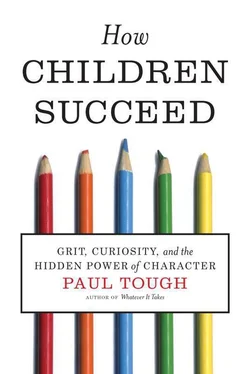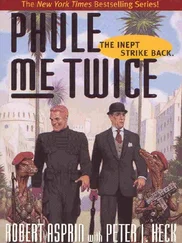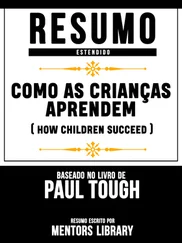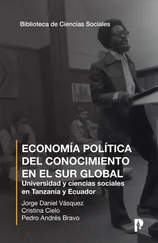When I spoke to teachers and administrators at Riverdale Country School and, later on, to the many private-school parents and teachers and alumni who had read the Times Magazine article on character and wanted to talk about it, this was exactly what they were most worried about—that their children were so overly protected from adversity that they weren’t developing the ability to overcome failure and learn from it. Reporting at Riverdale, I often felt that I had stumbled upon a pervasive, if still somewhat inchoate, anxiety within the contemporary culture of affluence, a feeling that something had gone wrong within the traditional channels of American meritocratic pursuit, that young people were graduating from our finest institutions of higher learning with excellent credentials and well-honed test-taking skills and not much else that would allow them to make their own way in the world. There are fewer entrepreneurs graduating from our best colleges these days; fewer iconoclasts; fewer artists; fewer everything, in fact, except investment bankers and management consultants. Recently, the New York Times reported that 36 percent of new Princeton graduates in 2010 took jobs in the finance industry, and another 26 percent took jobs in a category that Princeton labels services, which features, prominently, management consulting. More than half of the class, in other words, was going into investment banking or consulting—and this after the near-collapse of the finance industry in 2008. (Before the economic crisis, about three-quarters of Princeton graduates went into one of those two careers.)
To some analysts, the fact that we are sending so many of our best and brightest young people into professions that are, let’s say, not known for their high level of personal fulfillment or deep social value is simply the continuation of the phenomenon that so many Riverdale teachers spoke to me about: kids who worked very hard but never had to make a difficult decision or confront a real challenge and so entered the adult world competent but lost. In 2010, an economics blogger and law professor named James Kwak wrote an insightful blog post addressing this issue, “Why Do Harvard Kids Head to Wall Street?” After Kwak graduated from Harvard, he, like so many of his classmates, went to work as a management consultant. And he explained that the reason that path is so well trod is not the money, though that doesn’t hurt. It’s that the firms make the path and the decision so easy to take and so hard to resist.
The typical contemporary Harvard undergraduate, Kwak wrote, “is driven more by fear of not being a success than by a concrete desire to do anything in particular.” The postcollege choices of Ivy League students, he explained, “are motivated by two main decision rules: (1) close down as few options as possible; and (2) only do things that increase the possibility of future overachievement.” Recruiters for investment banks and consulting firms understand this psychology, and they exploit it perfectly: the jobs are competitive and high status, but the process of applying and being accepted is regimented and predictable. The recruiters also make the argument to college seniors that if they join Goldman Sachs or McKinsey and Company or any similar firm, they’re not really choosing anything—they’re just going to spend a couple of years making money and, perhaps, recruiters suggest, doing some good in the world, and then at some point in the future they’ll make the real decision about what they want to do and who they want to be. “For people who don’t know how to get a job in the open economy,” Kwak wrote, “and who have ended each phase of their lives by taking the test to do the most prestigious thing possible in the next phase, all of this comes naturally.”
If you’re an undergraduate at Harvard, your struggles with the challenges of character might land you in a less-than-inspiring investment-banking job. If you’re a teenager growing up on the South Side of Chicago, though, they might land you in jail, or at least at the Vivian E. Summers Alternative High School. And while it is hard to argue that the general public has a responsibility to help Ivy League grads reach their full potential, it is easier to make the case that society has an important role to play in the successful development of children growing up in poverty and adversity. Liberals and conservatives differ sharply on what the government should do to aid families in poverty, but just about everyone agrees that it should do something. Helping to alleviate the impact of poverty and providing young people with opportunities to escape it: that has historically been one of the essential functions of any national government, right up there with building bridges and defending borders. Poll numbers from an ongoing survey of attitudes by the Pew Research Center show that most Americans concur. Although public support for aid to the poor has weakened somewhat since 2008, as it often does during economic hard times, a clear majority of Americans still agree with the statements “The government should guarantee every citizen enough to eat and a place to sleep” and “It is the responsibility of the government to take care of people who can’t take care of themselves.” And when the issue is framed in terms of opportunity, the public consensus is much more clear and unwavering: since 1987, when Pew started asking these questions, between 87 percent and 94 percent of respondents in every poll have agreed with the statement “Our society should do what is necessary to make sure that everyone has an equal opportunity to succeed.”
But while Americans remain as committed as ever to helping their less fortunate neighbors succeed, something important has changed in the past few decades: what was once a noisy and impassioned national conversation about how best to combat poverty has faded almost to silence. Back in the 1960s, poverty was a major focus of public debate. You couldn’t be a serious policy intellectual without weighing in on the issue. During the Johnson administration, the place to be for smart, ambitious young people in Washington was the Office of Economic Opportunity, the command center for the War on Poverty. In the 1990s, there was once more a robust public discussion of poverty, much of it centered on the issue of welfare reform. But now those debates have all but disappeared. We have a Democratic president who spent the early part of his career personally fighting poverty, working in the same neighborhoods that YAP’s advocates are working in today—doing a pretty similar job, in fact. But as president, he has spent less time talking publicly about poverty than any of his recent Democratic predecessors.
It is not that poverty itself has disappeared. Far from it. In 1966, at the height of the War on Poverty, the poverty rate was just under 15 percent; in 2010, it was 15.1 percent. And the child poverty rate is substantially higher now. In 1966, the rate stood at a little more than 17 percent. Now the figure is 22 percent, meaning that between a fifth and a quarter of American children are growing up in poverty.
So if poverty is at least as big an issue today as it was in the 1960s, why have we mostly stopped talking about it—in public, at least? I think the answer has partly to do with the psychology of public intellectuals. The War on Poverty left some very deep scars on the well-educated idealists who waged it, creating a kind of posttraumatic stress disorder for policy wonks. Remember, President Kennedy first talked about putting an end to poverty at about the same time he promised to put a man on the moon. The early 1960s was an era of great optimism and hope in Washington, and the Apollo missions fulfilled that hope. They were a huge national triumph, and their message was that if we as a nation set our minds to a problem, we could solve it.
Читать дальше



![Коринн МакКей - How to Succeed as a Freelance Translator [calibre 3.46.0]](/books/402693/korinn-makkej-how-to-succeed-as-a-freelance-transl-thumb.webp)








